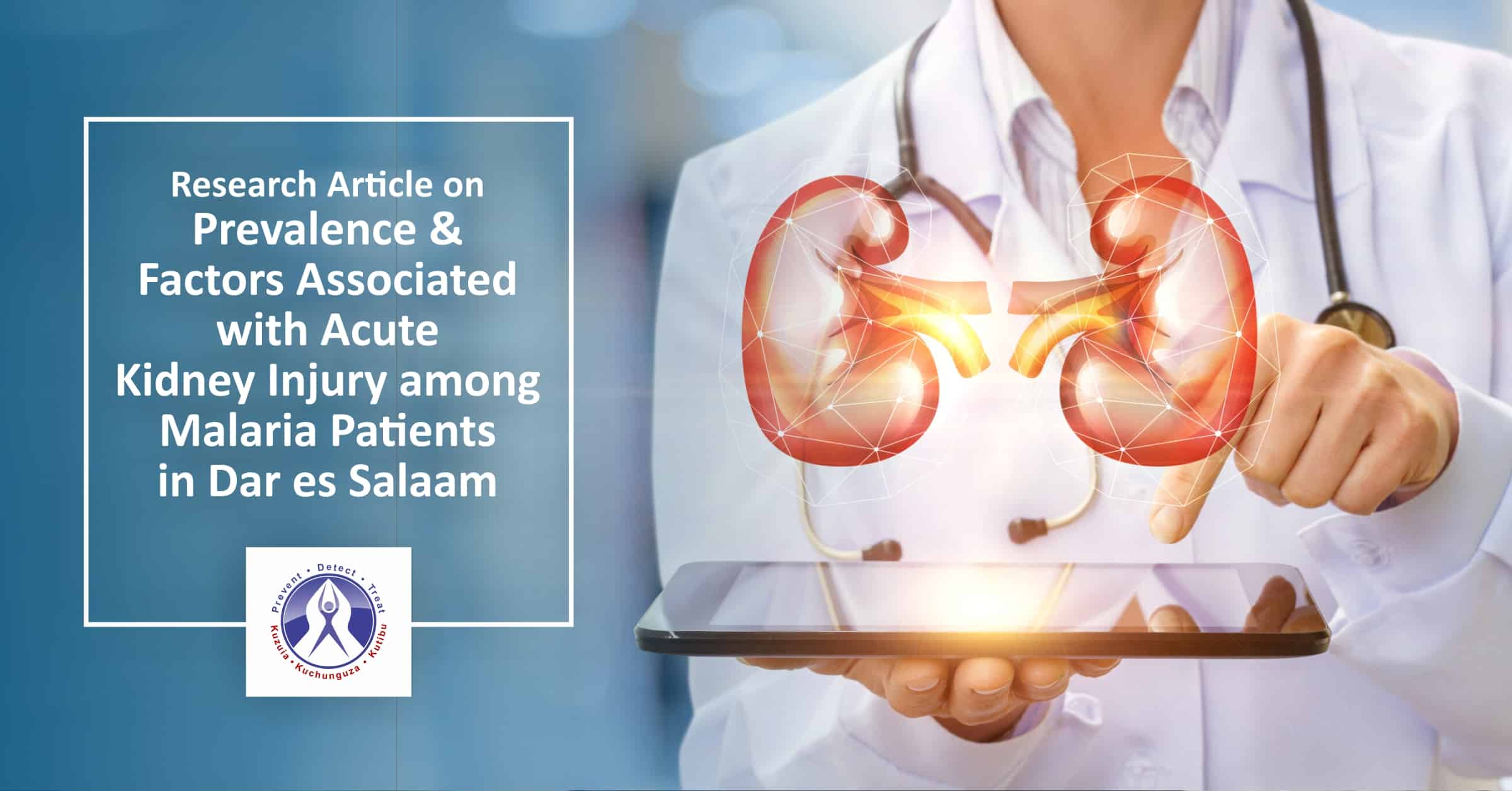Research Breakthrough in Treatment of MAKI by RMC
658 viewsThe continent of Africa has battled Malaria for decades.
According to the WHO, “in the year 2015, 88% of global cases and 90% of global deaths occurred in the African Region. Between 2000 and 2015, the number of malaria cases declined by 42% while the malaria death rate declined by 66% in the African Region.”(WHO, 2017).Although the mortality rate has reduced over time, the threat of malaria still looms large.
In 2015, the doctors at the Regency Medical Centre (RMC), Tanzania conducted a research study. This research focuses on the direct correlation between severe malaria and renal or kidney infection. In other words, as malaria worsens in the patient, he or she becomes more susceptible to kidney infection and ultimately becomes a victim of Acute Kidney Infection (AKI). This also increases the chances of death significantly.
This research was published certifying the commitment of our medical team to combat malaria and AKI. Below we yield and examine section-wise findings from the study.
Research Rationale
MAKI (Malaria associated Acute Kidney Infection) is a common occurrence in Tanzania’s public health sphere. However, despite its high prevalence, there is insufficient to no data on MAKI in Tanzania. This is all the more reason to conduct research and produce findings to devise strategies to combat this debilitating disease.
Staying true to its commitment to provide the best medical care and a healthy environment to every Tanzanian citizen, this research by the doctors of RMC, Dar es Salaam tries to address the information gap between information, awareness and disease treatment.
Through this study, it is our endeavour to learn more about the prevalence of the number of persons affected by the disease, and demographic and clinical factors related to MAKI. The team at RMC along with our partner researchers published a research paper: Prevalence and Factors Associated with Acute Kidney Injury among Malaria Patients in Dar es Salaam: A Cross-Sectional Study in Hindawi journals.
This research study was conducted in the RMC which is a tertiary level private hospital in Dar es Salaam. The study took place between April — September 2015 and consisted of 104 participants. Appropriate permissions were sought to conduct the study.
How Malaria Occurs
Malaria is caused by a protozoan of genus Plasmodium transmitted to human beings by an infected mosquito bite. There are four species of genus Plasmodium viz. falciparum, vivax, malaria, and ovale. The genesis of malaria takes place when sporozoites (the malaria parasite in its immature form) enter the victim’s bloodstream and thereafter affect the liver. Regardless of which species infects the victim, the resulting symptoms remain the same. Malaria victims experience general weakness, headaches, nausea, fever, chills and sweating.
Malaria Associated Kidney Infection
MAKI is caused by the Plasmodium parasite species “falciparum” and is the most severe form of falciparum malaria complication in patients. MAKI is responsible for increasing the chances of hospital admissions from anywhere between 2% to 39%. MAKI is also more prevalent in males than females. In malaria-endemic countries such as Tanzania, up to 40% of patients are susceptible to AKI and the mortality rate or chances of death are at a very high 75%. Patients can also acquire complications such as anaemia, proteinuria and thrombocytopenia.
Treatment and Results
RMC takes pride in its well-established healthcare infrastructure which includes nephrology or kidney speciality, department and an internal medicine department, dialysis unit and Intensive Care Unit (ICU). All these were actively involved in the study and administered the best possible care to patients in this study. The Artemisinin-based Combination Therapy (ACT) to treat malaria is the standard treatment as per WHO guidelines. These also apply to the Tanzanian national guidelines vis-a-vis malaria treatment and this study adhered to the same.
The prevalence of AKI was recorded at 48 hours after the hospitalization of the patients and the next recording was done seven days after admission. During this period, intensive care and appropriate anti-malarial treatment within the WHO and national framework was given to the patients. It was observed that most of the patients were males with extremely low haemoglobin to severe anaemia.
On the seventh day of treatment, our doctors were happy to note that there was a significant reduction in AKI. For example, 26% of patients that were admitted indicated severe AKI in the first 48 hours. However, on the seventh day, this number dropped to 18.3%.
In conclusion, with early prognosis and the right treatment, AKI can be prevented and lives saved. It is our aim to ensure that the maximum number of people reap the benefits of the research and its findings. We encourage our readers to read and share this article widely with family and friends. It is our hope that more people are aware of this life-threatening disease and its symptoms in order to take preventive action at the earliest.

